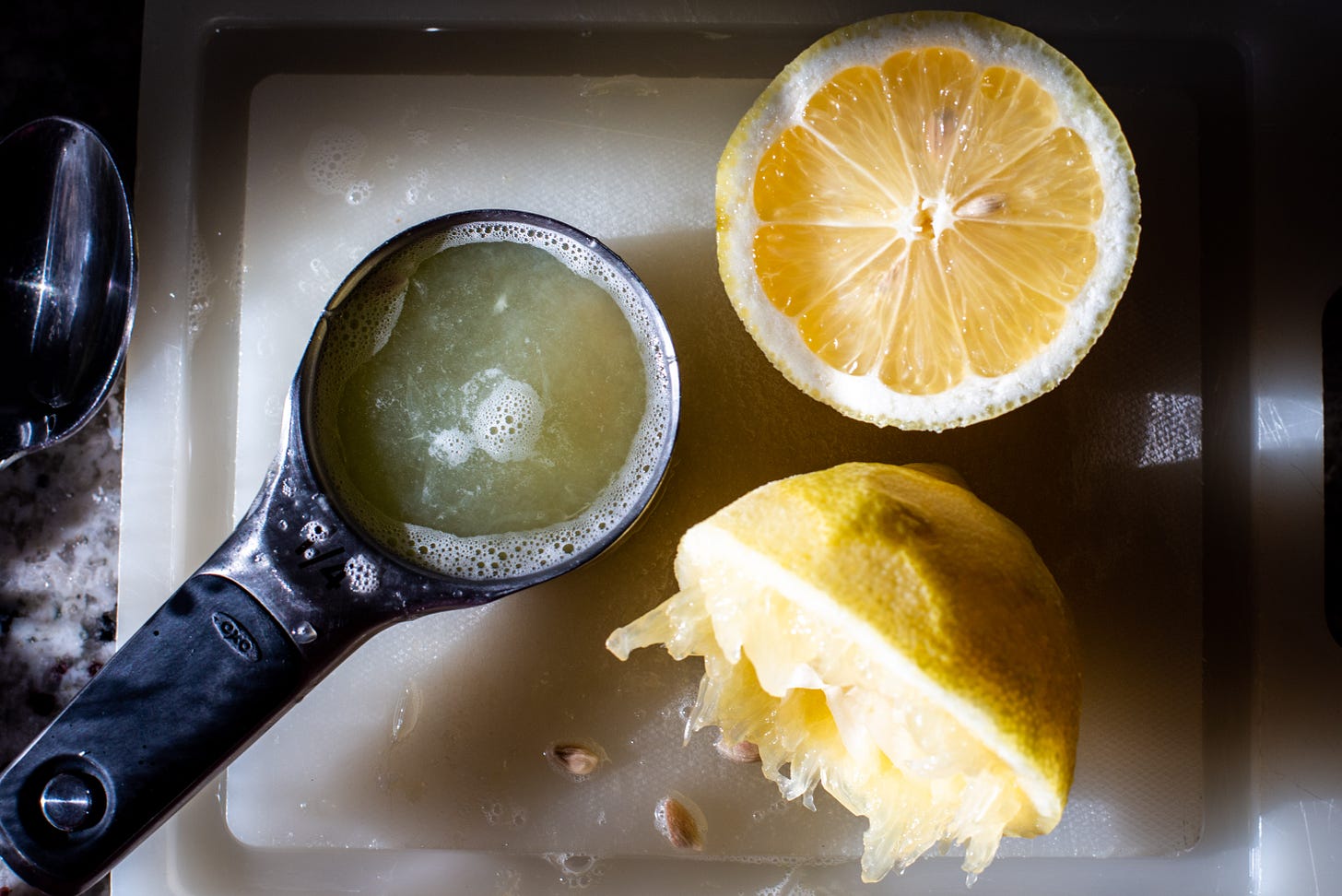RWL #271
life continues to be interesting
Happy Easter from the University of New Hampshire! Also belated happy Passover, and any other celebrations of spring. Life continues to be interesting at the LHH as we adapt to having my daughter, her two roommates, and four cats living with us. I mentioned last week that my daughter and her roommates had to move out of their apartment because of a fire and have been living with us for about two weeks now. We have found housing for them, but it won’t be available until the first week of June, so we are settling in for a couple of months of living together. Except for the fact that this past week was the last full week of tax season, and my wife is a CPA, it has been fun to have them all with us. There is something to be said for being an empty nester, but there is also something to be said for having a house bustling with activity and people and animals coming and going. My wife and I feel very blessed that we could take them all in. Holidays are a great time to have a house full of friends and family. So are most days.
My youngest daughter and I baked a couple of batches of cookies for today’s family meal. We did chocolate pinwheel cookies from Anne Byrn’s American Cookie,
and Caramel Crunch-Chocolate Chunklet Cookies from Dorie Greenspan’s Baking with Dorie (no picture). But I’m most excited about my Italian Lemon Ricotta Cake. Pic above is of the lemon juice I was putting in the frosting. I don’t make pretty cakes, so they aren’t much worth taking a picture of. But I do love this recipe. Check it out here.
Having grown up in the Catholic tradition, Easter is technically the most important religious holiday of the year - though I have always favored Christmas. Easter is about celebrating sacrifice and gratitude. To be alive today is to enjoy privileges of the sacrifices and work of past generations. We inherit so much from the past, especially in Western nations. We have the benefits of science and technology and medicine that allow us to lead lives of unimaginable wealth compared to people who lived a century or two ago. But more than the physical, our inheritance of the liberal values of democracy, rule of law, and individual rights give us so much freedom to be the people we want to become, we should take time to be grateful for that.
So that’s what’s happening this week. Still willing good for all of you, I present you with the links!
Read
What: The Atlantic, Jonathan Haidt, Why the Past 10 Years of American Life Have Been Uniquely Stupid
https://www.theatlantic.com/magazine/archive/2022/05/social-media-democracy-trust-babel/629369/
Why: Haidt is the co-author, among other things, of the book The Coddling of the American Mind. He has been struggling to understand the state of political discourse and why it has become so horrible. This may be his best essay on the topic so far. He uses the story of the Tower of Babel from the Bible as a metaphor to describe the discord that social media has helped unleash on our society. This is not just a screed against social media which at this point would elicit another yawn. He has some very good insight into the interface of social trends, of which the emergence of social media was just one. This is a longish essay and there is too much there to quickly summarize.
I also have an interview of Haidt by Andrew Sullivan in Listen below discussing this article.
I want to put an emphasis on this one - it is very much worth reading.
He concludes “We cannot expect Congress and the tech companies to save us. We must change ourselves and our communities.”
**
What: WaPo, Ukraine is scanning faces of dead Russians, then contacting the mothers
https://www.washingtonpost.com/technology/2022/04/15/ukraine-facial-recognition-warfare/
Why: This is a disturbing article. You might want to consider whether you want to read it. I believe the Russian invasion of Ukraine is essentially organized, mass murder, so almost anything the Ukranians do to defend themselves is acceptable. But this may actually take it too far. As a soldier, I learned about law of war from the very beginning of my career. In my officer basic course we discussed events like the Mai Lai Massacre and how they were not only unethical, but antithetical to winning a war. Committing atrocities against a civilian population tends to harden the resolve of the population against an invading force, not weaken it. The Russian violence has succeeded in not only hardening the resolve of the Ukrainian people, but perhaps given then a national identity that they did not have before. Unfortunately this use of technology may harden Russian resolve and make the Ukrainians seem like the deserve horrors Putin has ordered.
**
What: FastCompany, Vomit, leeches, bloodletting: These magnificent illustrations capture a less glamorous side of medieval life
Why: I love shocking my students in my US Health Systems class when I describe healthcare as it existed up until the 19th century. I am definitely going to assign this article in the future. Some great art portraying the “evidence-based medicine” of the time.
In the Middle Ages, the health of family members, from infancy to old age, was maintained through a variety of strategies that aimed for balance in the body. The Régime du corps recommended a wide range of treatments, including the release of bodily fluids through purging or bloodletting to maintain such balance.
Fun stuff!
**
Watch
What: Why your life is so boring (6 min)
Why: Life is a series of days. Making life more meaningful is done in small chunks by changing habits. That’s the key message here. That message really resonates with me because I am continuing with my own efforts at daily habits. Unfortunately over the last two weeks things have been a bit out of control, so I haven’t been able to meet most of my goals, but I’m still working on it. It’s all about habits.
(FYI - Technically this video is 9 minutes, but after about the 6th minute it becomes a long infomercial for SkillShare - which you can watch, but I would stop when he starts to go into sponsored content.)
**
Listen
What: GoodFellows, Conversations from the Hoover Institution: Soft Landing: Larry Summers On Inflation, Debt, And A Looming Recession (69 min)
Why: Larry Summers is a famous economist who served as the 71st United States Secretary of the Treasury from 1999 to 2001 and as the 8th Director of the National Economic Council from 2009 to 2010. Despite his affiliation with the Democratic Party, he was publicly against the Biden administration’s COVID stimulus saying it would likely cause inflation. And unfortunately for us, he was right. Summers is famously disagreeable but well-spoken, and that is how he is here. Very good discussion of policy in the current context.
**
What: The Dishcast with Andrew Sullivan, Jonathan Haidt On Social Media’s Havoc (86 min)
Why: As I mentioned above, Sullivan interviews Haidt about his article in the Atlantic (linked to in Read).
Thanks for reading and see you next week! If you come across any interesting stories, won't you send them my way? I'd love to hear what you think of these suggestions, and I'd love to get suggestions from you. Feel free to drop me a line at mark.bonica@unh.edu , or you can tweet to me at @mbonica .
If you’re looking for a searchable archive, you can see my draft folder here: https://drive.google.com/drive/folders/1jwGLdjsb1WKtgH_2C-_3VvrYCtqLplFO?usp=sharing
Finally, if you find these links interesting, won’t you tell a friend? They can subscribe here: https://markbonica.substack.com/welcome
See you next week!
Mark
Mark J. Bonica, Ph.D., MBA, MS
Associate Professor
Department of Health Management and Policy
University of New Hampshire
(603) 862-0598
mark.bonica@unh.edu
Health Leader Forge Podcast:
http://healthleaderforge.org
“The meaning of life is to find your gift. The purpose of life is to give it away.” – Pablo Picaso




